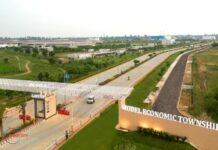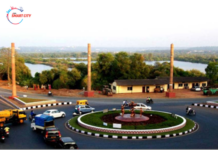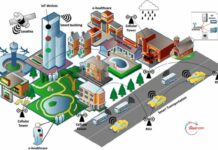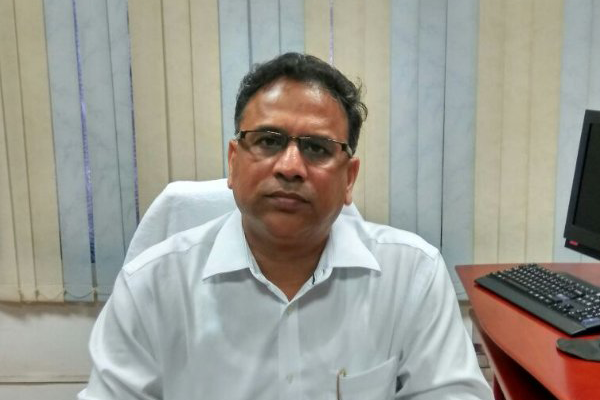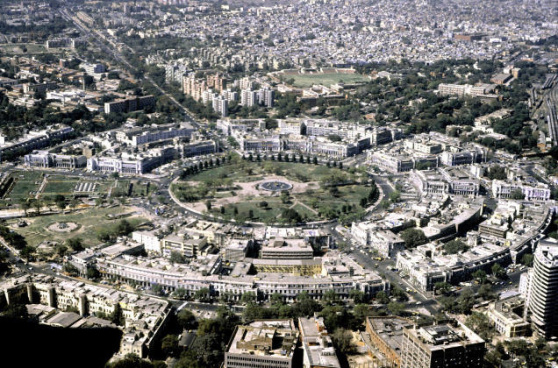
Infrastructure development, enabling quality of life to citizens alongside generating employment avenues is the foremost aspiration of Government and every citizen. Smart Cities Mission of our honourable Prime Minister is an ambitious initiative towards driving economic growth and improving the quality of life of the citizens by facilitating local area development and smart technological moves which can lead to smart outcomes.
 However, there is no single definition of a Smart City, it varies from city to city and country to country, depending on various factors & vital requirement of a city. Implication of Smart Solutions will definitely facilitate cities to use technology, information and data to improve infrastructure and services. Infrastructural development not only improves the liveability quotient of a particular city but it also makes housing and working conditions comfortable. The primary infrastructure elements in a smart city would include various factors such as adequate water supply, assured electricity supply, sanitation including solid waste management, efficient public transportation facilities, affordable housing, robust IT connectivity and digitalization, good governance, especially e-Governance and citizen participation, sustainable environment, safety and security of citizens, mainly women, children and the elderly, and health and education.
However, there is no single definition of a Smart City, it varies from city to city and country to country, depending on various factors & vital requirement of a city. Implication of Smart Solutions will definitely facilitate cities to use technology, information and data to improve infrastructure and services. Infrastructural development not only improves the liveability quotient of a particular city but it also makes housing and working conditions comfortable. The primary infrastructure elements in a smart city would include various factors such as adequate water supply, assured electricity supply, sanitation including solid waste management, efficient public transportation facilities, affordable housing, robust IT connectivity and digitalization, good governance, especially e-Governance and citizen participation, sustainable environment, safety and security of citizens, mainly women, children and the elderly, and health and education.
Also Read : Smart Cities Mission projects worth Rs 3,049 crore started in 2018
The aim of accomplishing the mission of Smart cities is a dream for many. However, developers in Mumbai have already started their bit by focusing on constructing smart buildings and smart homes by incorporating smart technology in their offerings. Although, earlier the developers refrained from deploying these due to the cost factor involved. However, reductions in the costs have led to upsurge in implication of automation in the recently launched and upcoming projects.
City management in a smart city can be incorporated with the initiative by installing smart parking meter that can help drivers find available parking spaces followed by enabling digital payments for easy access to timely payments. In future, builders in Mumbai are looking forward to building up a place with more focus on energy conservation and efficiency which is a major focus of smart cities. It is important to aim in monitoring and addressing environmental concerns like climate change and air pollution. Using smart sensors, smart streetlights which get dim when there aren’t cars or pedestrians on roadways.
To improve operations, planning and maintenance to supply power on demand and monitor energy outages using Smart grid technology are highly important. Whereas, Government has announced various reforms and initiatives to look into affordable housing, solid waste management, digitalisation along with overall transparency in various spheres. With an aim to advance the urban eco-system; institutional, physical, social and economic infrastructure are the major pillars to be focused on.
It is a long term goal and every citizen should work towards the same along with government to accomplish the mission. Impact of smart cities on Indian infrastructure: Due to the real estate sector undergoing phenomenal transition due to accelerated rate of urbanisation, liberalisation of the sector through Foreign Direct Investment (FDI), sound development of Real Estate Investment Trusts (REITs) and overall increased competitiveness and job creation, the urbanisation trends that only focused on global cities of India like Delhi, Mumbai, Bangalore, Kolkata and Chennai.
The Smart City initiative has now shifted from Tier 1 cities to Tier 2. The initiative helps to collect and analyse data from sensors and video cameras to help them manage their transport networks, power plants, water supplies and waste management systems, police forces, schools, libraries, hospitals, and other services. The smart technology permits city officials to interact directly with infrastructure and to monitor what is happening in the city as it evolves. Mumbai will be seen as a smart city if only we observe a change in the collaboration of business models, from the traditional market-based models to public-private partnerships.
(Views expressed in this article are of Parth Mehta, Managing Director of Paradigm Realty)

